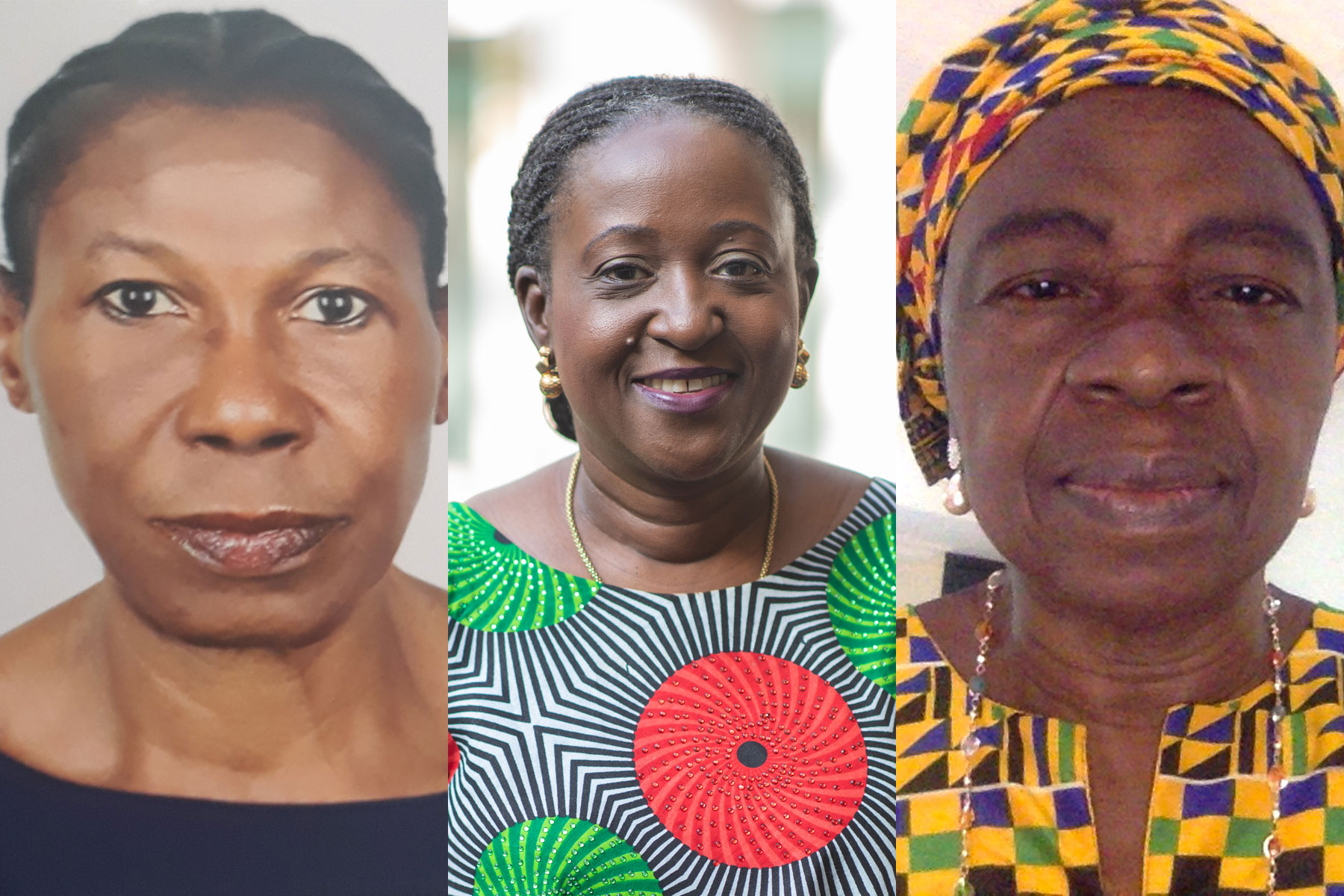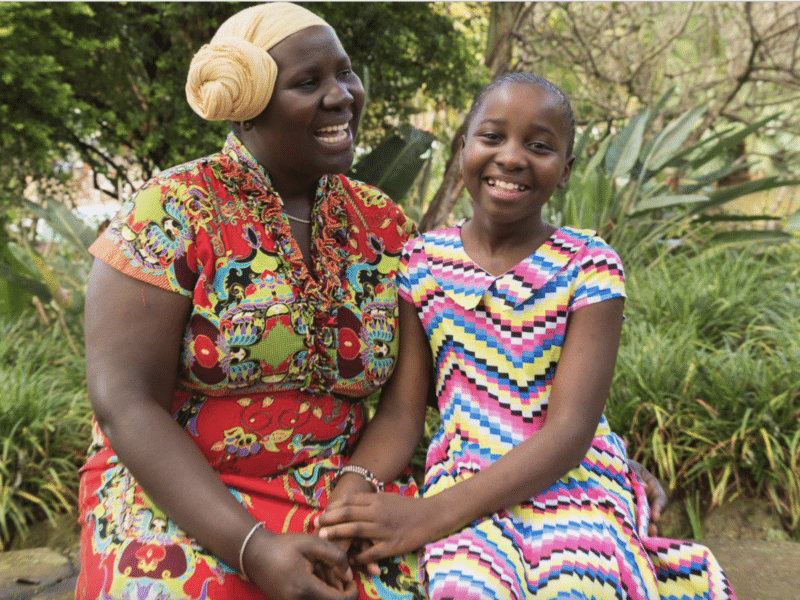A decline in fertility rates can accelerate economic growth, but how do we make this happen in a systematic way? CCP’s Kanika Campbell sat down to discuss what public health professionals call the demographic dividend with CCP’s Mojisola Odeku, family planning portfolio director in Nigeria; CCP’s Charity Ibeawuchi, a senior technical advisor for advocacy; and Margaret Edison, director of the Population Management Department of Nigeria’s National Population Commission.
Kanika Campbell: What role does family planning play in improving Nigeria’s economy?
Margaret Edison: A rapid decline in fertility rates can accelerate economic growth. In a society where there are many children and not enough working age people to support the economy, countries struggle to reach their full potential.
How do we achieve a decline in fertility rates? We focus on family planning, child spacing, modern contraceptive use, and girls’ education. And we target policies that will help us see lower birth rates in Nigeria.
Programmers and agencies, whether international or local, that are assisting countries to achieve demographic transition must give attention to programming that includes contraceptive availability, stocking and distribution of contraception products, and expanding demand. Granting access to family planning and making sure that we have a wide range of options, so that we are talking about rights and choices, so that women who want to space their births, who want to limit childbearing, who want to postpone childbearing, who want to avoid unwanted pregnancy, should have equitable access to a wide range of family planning at a very close proximity to where they live.
Charity Ibeawuchi: Currently, in Nigeria, every woman who has children gives birth to an average of 5.5 children. We will only be able to improve the quality of life in Nigeria when the fertility rate falls to less than four children per woman, that’s what the research tells us. And changing the demographics of a country – i.e. achieving a demographic dividend – doesn’t happen overnight, but with sustained efforts we believe that we can make real progress as a nation.
A demographic dividend is the accelerated economic growth that a country can experience when birth and death rates decline. If, for example, births are too high, there typically aren’t enough people in the country of working age to make the economy run smoothly and too many kids for the economy to adequately care for. Nigeria hasn’t achieved a demographic dividend because of its high fertility rates, declining mortality rates and because the age of its population is skewed toward younger people. Without changes, Nigeria won’t achieve the benefits of a demographic dividend.
Kanika: Can you explain the demographic dividend effort index and why it’s important to Nigeria?
Margaret: The demographic dividend effort index is a tool that takes program implementers and researchers through the process of assessing local efforts towards achieving demographic dividend. It tells us how we are doing in achieving our goals. The index provides a snapshot of a country’s progress in terms of policy, actions, programming, interventions, and investment. It not only tells you where you are but also provides a road map of what to do to make progress.
Mojisola Odeku: The effort index is simple, practical and easy to understand for program managers. It can also become a resource document that other countries can use during their transition to achieving a demographic dividend. It was a bottom-up approach of the community of practice members developing the index based on field experiences and lessons learned. They had the ability to review and decide the practical indicators to measure and they can track over time and have it to inform future planning.
Kanika: What was CCP’s role in establishing the demographic dividend effort index?
Mojisola: The Bill & Melinda Gates Institute for Population and Reproductive Health reached out to CCP, as a technical thought leader in family planning in Nigeria and an organization well-respected by the Nigerian stakeholders. They were looking for an organization with a wealth of technical expertise. We saw it as a good opportunity because we are an evidence-based organization, we like to track progress, we like to see family planning well integrated into the process of achieving demographic dividend.
Kanika: Now that the project has engaged you and the National Population Commission with the demographic dividend, what do you see as those next steps, how are we taking this forward?
Margaret: On the government path, for you to be able to drive an agenda to a logical conclusion, you have to have an understanding of the subject matter and that will encourage commitment and buy-in from the government side. So the next step, which we are pursuing now, is creating advocacy through awareness creation, through sensitization, to create an understanding of why birth rates and the economy are so intertwined. The laymen in the National Assembly, at the presidency, at the state level, at a community level, at the household level, should understand what demographic dividend is all about and how this is important to us as individuals and collectively.
Improving the well-being of an average Nigerian and improving our standard of living and quality of life –it is a collective responsibility from the national government. Through this, we have created a community of practice so that we can drive this agenda together. That is the balanced platform, balanced negotiation, balanced conversation, balanced engagement, that we think we should take forward if we must make tangible progress and be able to create conditions that will enable Nigeria to achieve greater economic growth.




